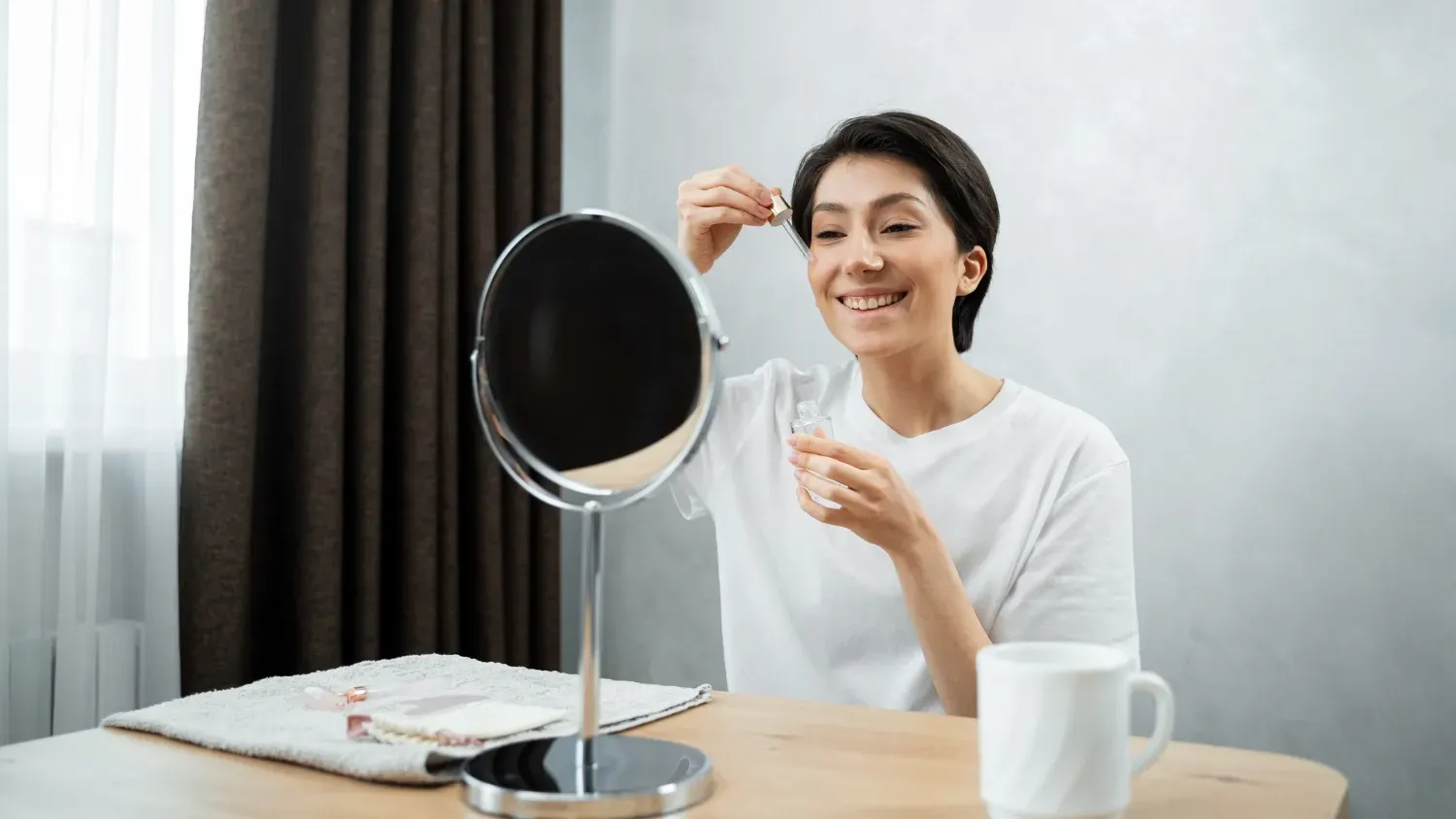Why Use Facial Serum? Exploring the Benefits for Skin Health

EXTRA 5% OFF ON PREPAID

Skincare routines have become an essential part of our daily lives, and for good reason. Our skin is constantly exposed to environmental stressors and needs proper care to stay healthy and radiant. One skincare product that has gained significant popularity in recent years is facial serum. In this article, we will try to understand the world of facial serums, their benefits, and why you should consider incorporating them into your skincare routine.
Facial serums are lightweight, highly concentrated skincare products designed to deliver active ingredients deep into the skin. Unlike moisturizers, which focus on hydrating the skin's surface, serums penetrate the skin to address specific concerns and provide targeted treatment. They are typically formulated with a high concentration of active ingredients such as antioxidants, vitamins, and peptides, making them potent and effective.
There are different types of serums available in the market, each catering to specific skincare needs. Some serums focus on hydration and moisturization, while others target anti-aging, brightening, or acne-prone skin. It's important to choose a serum that aligns with your skin concerns for optimal results.
Key ingredients found in facial serums include hyaluronic acid, vitamin C, retinol, niacinamide, and peptides. These ingredients offer various benefits to the skin, such as hydration, brightening, collagen production, and reduction of fine lines and wrinkles. Let's explore the benefits of using facial serums in more detail.
One of the primary benefits of using facial serums is their ability to provide intense hydration and moisturization. Serums with ingredients like hyaluronic acid attract and retain moisture, keeping the skin plump, supple, and hydrated. This helps to combat dryness and maintain a healthy skin barrier.
Facial serums containing retinol, peptides, and vitamin C can help reduce the appearance of fine lines and wrinkles. These ingredients stimulate collagen production, which improves skin elasticity and firmness. Regular use of serums can lead to smoother, younger-looking skin.
Many serums incorporate ingredients like vitamin C and niacinamide, which are known for their brightening properties. These ingredients help fade dark spots, even out skin tone, and promote a more radiant complexion. Using a serum with these ingredients can give your skin a healthy glow.
Facial serums are highly customizable and can be tailored to address specific skin concerns. Whether you're dealing with acne, hyperpigmentation, or sensitivity, there is likely a serum available that can help target those concerns. Using a serum that is specifically formulated for your skin needs can provide significant improvements in your skin's condition.
As mentioned earlier, certain ingredients found in facial serums, such as retinol and peptides, stimulate collagen production. Collagen is a protein responsible for maintaining the skin's structure and elasticity. By boosting collagen production, serums can help firm the skin, reducing sagging and promoting a more youthful appearance.
With the wide variety of facial serums available, it can be overwhelming to choose the right one for your skin. Here are some tips to help you make an informed decision:
Take the time to understand your skin type and concerns. Whether you have dry, oily, combination, or sensitive skin, there is a serum suitable for your needs. Identify your main skincare concerns, such as aging, acne, or hyperpigmentation, and look for serums that specifically target those issues.
When shopping for a facial serum, read the product labels and familiarize yourself with the ingredients. Look for serums with high concentrations of active ingredients that address your specific concerns. Avoid serums with potential irritants or unnecessary additives.
Consider your personal preferences when choosing a facial serum. Some people prefer serums with a lightweight, watery consistency, while others prefer thicker, oil-based serums. Additionally, take your budget into account as serums can vary in price. There are effective serums available at various price points, so find one that fits your budget without compromising on quality.
To incorporate facial serums into your skincare routine, follow these steps:
For most serums, it is recommended to use them twice a day, in the morning and evening. However, always follow the instructions provided by the brand, as some serums may have specific usage guidelines. It's important not to use more than the recommended amount, as a little goes a long way with serums.
Additionally, it's crucial to follow up with a moisturizer and sunscreen after applying facial serum. Moisturizers help seal in the serum's active ingredients and provide additional hydration, while sunscreen protects the skin from harmful UV rays.
Facial serums can be used in conjunction with other skincare products to maximize their benefits. After cleansing and applying a serum, you can follow up with a moisturizer, eye cream, and sunscreen. Layering different products allows each to work synergistically, providing comprehensive care for your skin.
Incorporating facial serums into your skincare routine can be a game-changer for your skin health. From enhanced hydration to targeted treatment for specific concerns, serums offer a multitude of benefits. By understanding your skin type, concerns, and choosing the right serum, you can achieve a healthier, more radiant complexion.
So, why not give facial serums a try? Explore the wide range of serums available and find one that suits your needs. Remember to be consistent in your usage and patient with the results. With time, you'll likely notice the positive impact that facial serums can have on your skin.